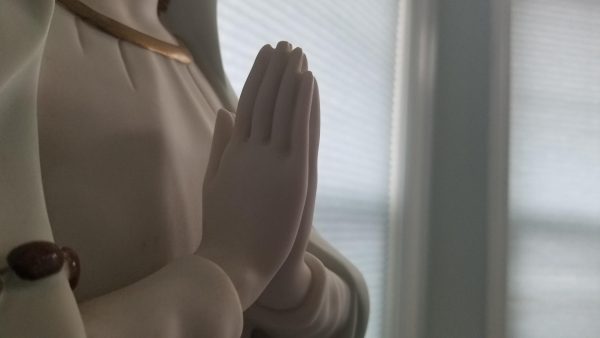LETTERS TO THE EDITOR
November 20, 2008
Columnist’s arguments against gay marriage are flawed
Dear Editor,
Stephen Ontko’s latest “column” is not in any way journalistic and is in fact a transparent attempt to cloak bigotry and blind zealotry in the guise of pseudo-intellectualism. I’ll give credit where it’s due, his arguments would sound cogent to individuals not familiar with the philosophers whose names he drops in an attempt to sound like a scholar. On closer examination, however, his arguments have the same flaw as those of the theologians whom he is attempting to describe as philosophers.
The first warning bell that sounded in my head was noting the Saint in front of Thomas Aquinas. If you’re going to attempt to describe a Catholic priest from the 13th century whose entire education was focused on the theology of the Catholic church as a philosopher and want people to buy off on it, consider leaving that Saint off the front of his name. The main claim to fame for Thomas Aquinas was not the universal applicability of his natural law theory; it was his attempt to reconcile faith and philosophy into one comprehensive package. How well he succeeded is a matter of great debate depending on whether you buy into both his and John Finnis’ central argument.
Philosophy and science are the same in that if you begin a process certain of the end result, you’re wasting your time. Both Thomas Aquinas and John Finnis begin with the bedrock certainty that the doctrine of the Catholic Church is unassailably correct. Rather than looking for answers, both of these men were attempting to cast events in such a light as to justify their prior conclusions. The flaw in this is that the rest of the world who doesn’t already agree with their base premise is going to recognize the engineered nature of their arguments.
Ontko’s feeble attempts to describe homosexuality as a violation of natural law and equate it with runaway polyandry and sexual deviance are clear evidence of his staggering ignorance of history, biology, sociology, anthropology and any other field of study that exists outside of his ironclad beliefs. Anyone who’s actually taken a look around the world both in the present time and throughout history will already know that homosexuality and marriage outside the traditional European boundary of one man and one woman are far from uncommon. Homosexual behavior has been observed in both wild and domestic animals, even in the presence of available sexual partners of the opposite sex. Are these animals, then, violating the doctrine of natural law through their perverse actions? How does one account for the fact that the vast majority of the world does not accept European ideas of marriage and its bounds?
True acceptance of a philosophy or principle entails dealing with results that run contrary to your belief if they follow that principle. Given the prevalence of homosexuality and multiple partner unions across the world throughout history, the evidence is far stronger that natural law encompasses much more than the view of morality that has been shaped in Europe over the past 1,800 years through Christianity. Utilizing this concept to attack opposition to Proposition 8 and similar measures is nothing more than an attempt to apply a singular religious doctrine as an unassailable truth in the face of reason.
I support civil unions for homosexual couples because I believe that government support of marriage provides a de facto advantage to heterosexual couples who are married in such areas as tax breaks, health benefits for partners and legal right as default next of kin. Homosexual couples who are willing to make a legal commitment to each other deserve the same benefits. It’s up to an individual church as to whether they’ll perform a marriage ceremony, but as long as there is a legal component to marriage supported by our government it is wrong to deny those benefits to an entire class of people. And yes, I’m not willing to set a limit that says two people in a marriage are okay but 14 are not. Whatever works for them is fine with me.
&mdash David Degenhardt, junior history major
























